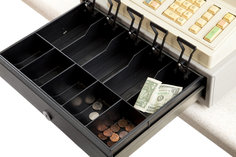
Financial hardship is difficult for any individual but for business owners, it can be particularly stressful as the line between personal and business finances may become blurred. You may have racked up a lot of personal credit card debt and may be considering filing for personal bankruptcy, but you are concerned about how bankruptcy will affect your small business. Or, your business could be struggling and you may wonder how a business bankruptcy will impact your personal finances.
First, you need to know about the three most common types of bankruptcy: Chapter 7, Chapter 11 and Chapter 13. Under a Chapter 7 bankruptcy, which is a liquidation, assets are used to pay debts, and any remaining debts are “wiped out”. A Chapter 7 filing can be utilized for both individuals and businesses. A Chapter 11 or 13, which are also available for individuals and businesses, commonly referred to as reorganization, allows debtors with a regular income to set up a new timetable for paying off creditors, while keeping their assets.
The second thing to consider is how your business is set up. If you are a sole proprietorship, and are simply operating the business in your own name, then there is no way to separate your personal assets and liabilities from those of your business. Therefore, any business assets (in excess of the exemption you are allowed) could be surrendered as a part of the bankruptcy. Also, any receivables of the business or other potentially valuable business property could be claimed by creditors in a bankruptcy.
If your business is operated under a separate entity, such as an LLC (limited liability company), an LLP (limited liability partnership), or a corporation, the shares of your business that you own are assets. If partners are involved in the business, the bankruptcy trustee who represents the interest of the creditors could become a de facto substitute partner and force a liquidation of the business.
If your business is struggling, but you are personally doing fine financially, you may consider a business bankruptcy. If you aren’t interested in keeping your business open, you may consider filing a Chapter 7, which will simply liquidate the business. A Chapter 7 is probably best if the business is not going anywhere, does not have significant assets, or if the debts are so completely overwhelming that it’s not possible to restructure them. Keep in mind that vendors and other creditors may have obtained a personal guarantee from you, in which case, you may be personally on the hook for your business’s liabilities, even if you do file bankruptcy for your company. Personal guarantee clauses are common on many credit applications and commercial leases.
If your business is fundamentally sound, but because of excessive debt, bad contracts, or other unfortunate circumstances faces significant liquidity issues, a Chapter 11 may be appropriate. A corporate reorganization can be complex and requires a significant time investment from the owners and managers who have to work with creditors and attorneys. It can also be expensive. Unfortunately, most reorganizations ultimately fail.
If you are considering business or personal bankruptcy, it’s important to carefully assess your individual circumstance and consult with a bankruptcy attorney who can advise you of all your options and help you navigate the process.